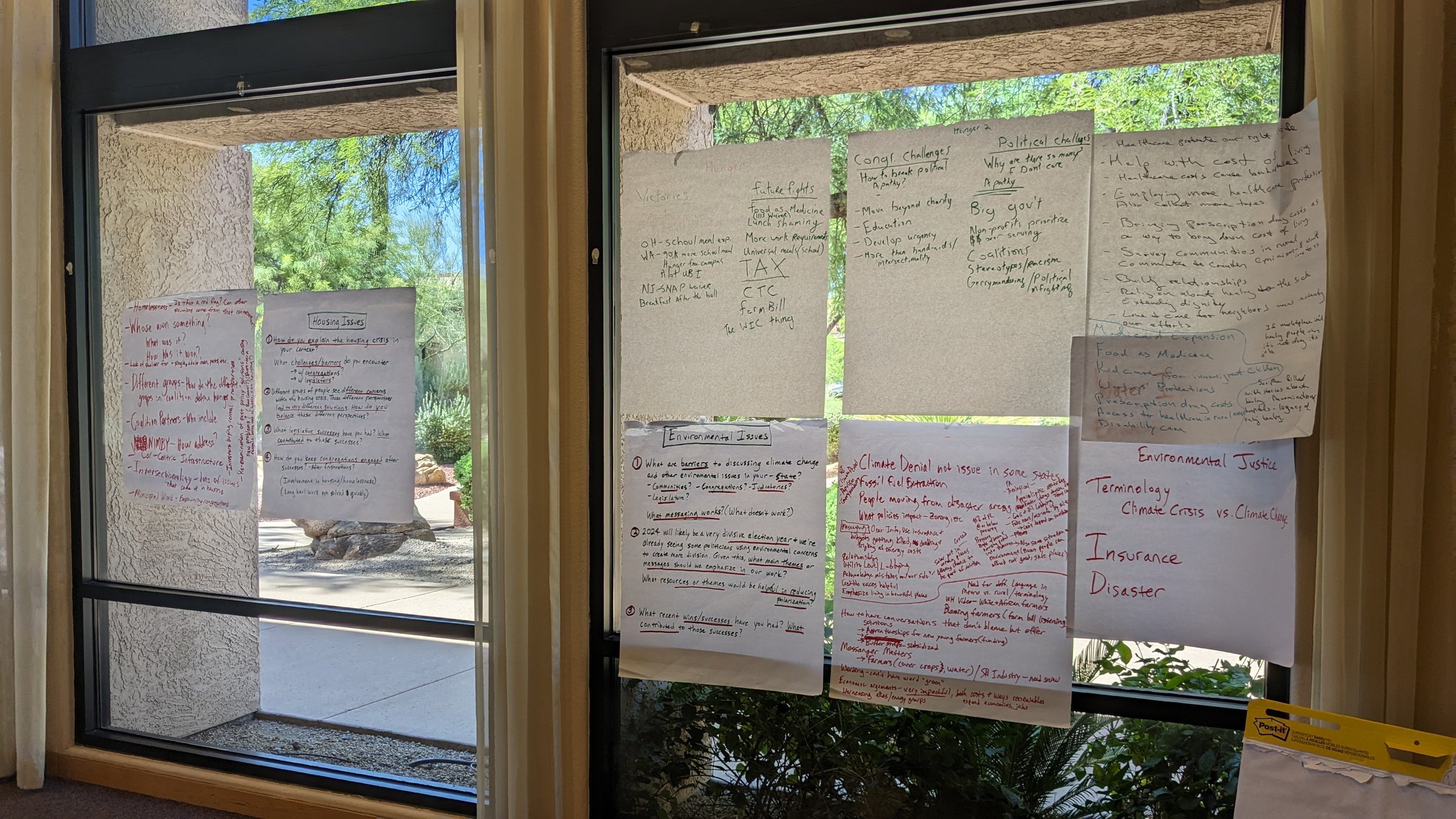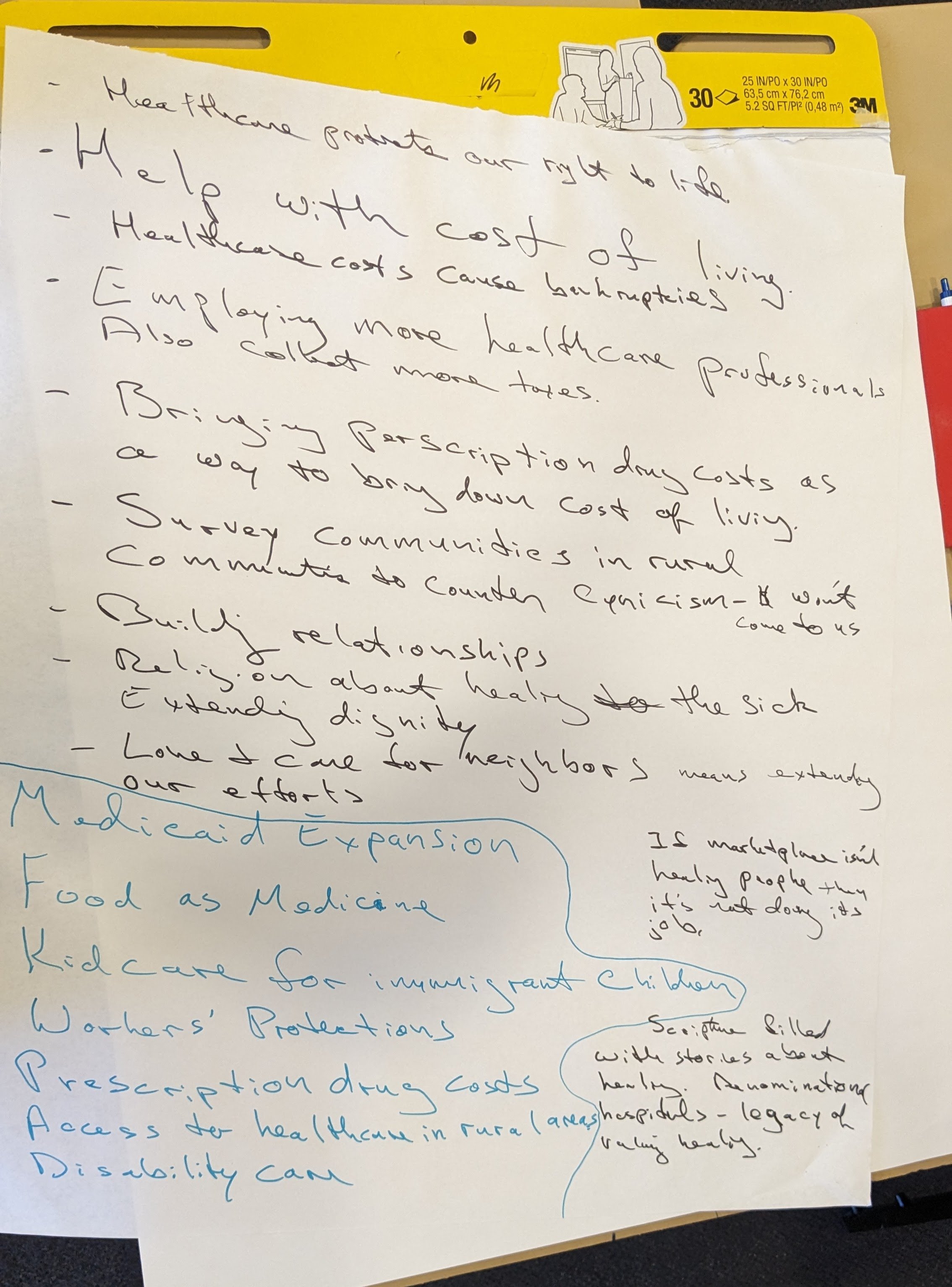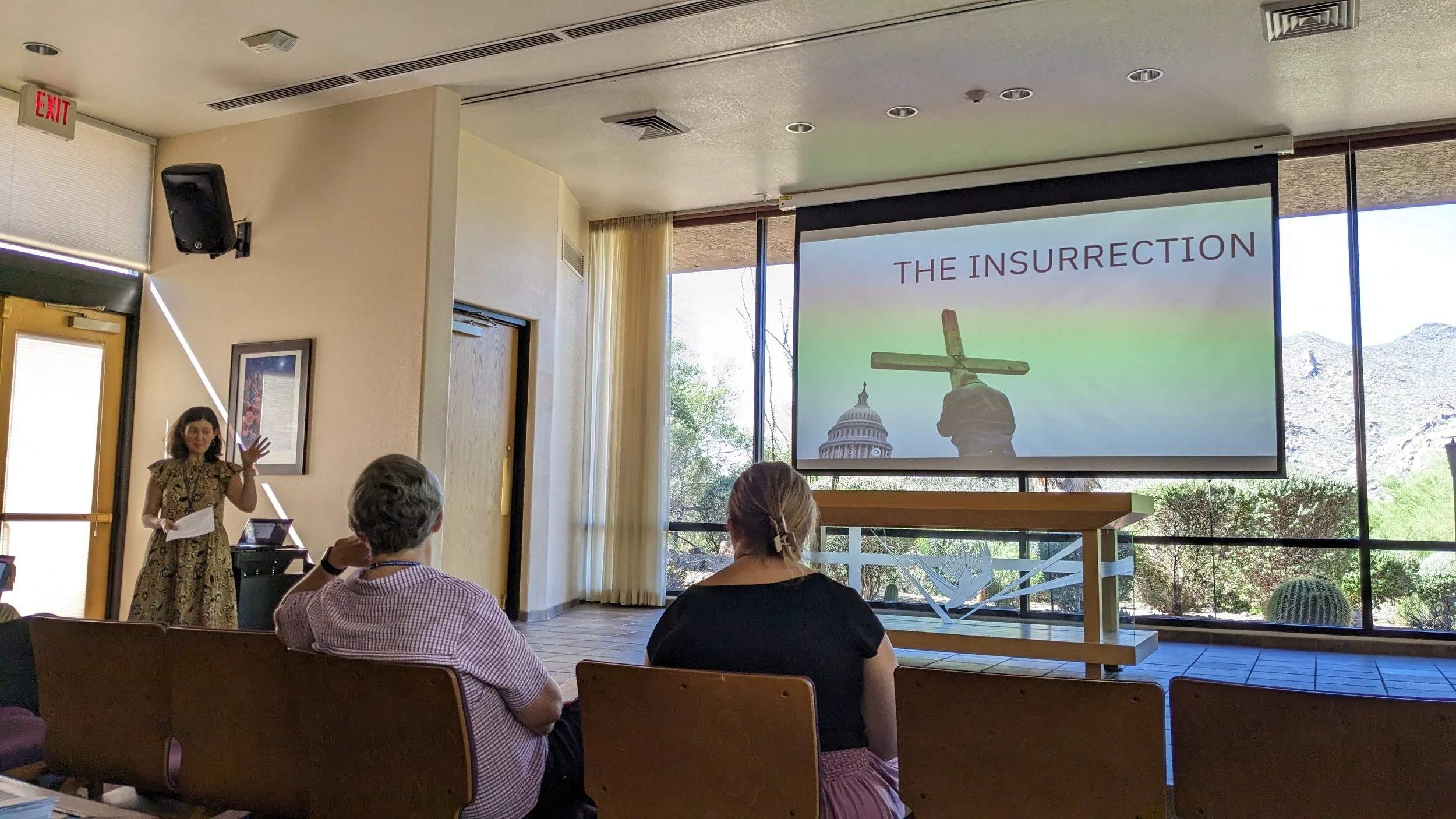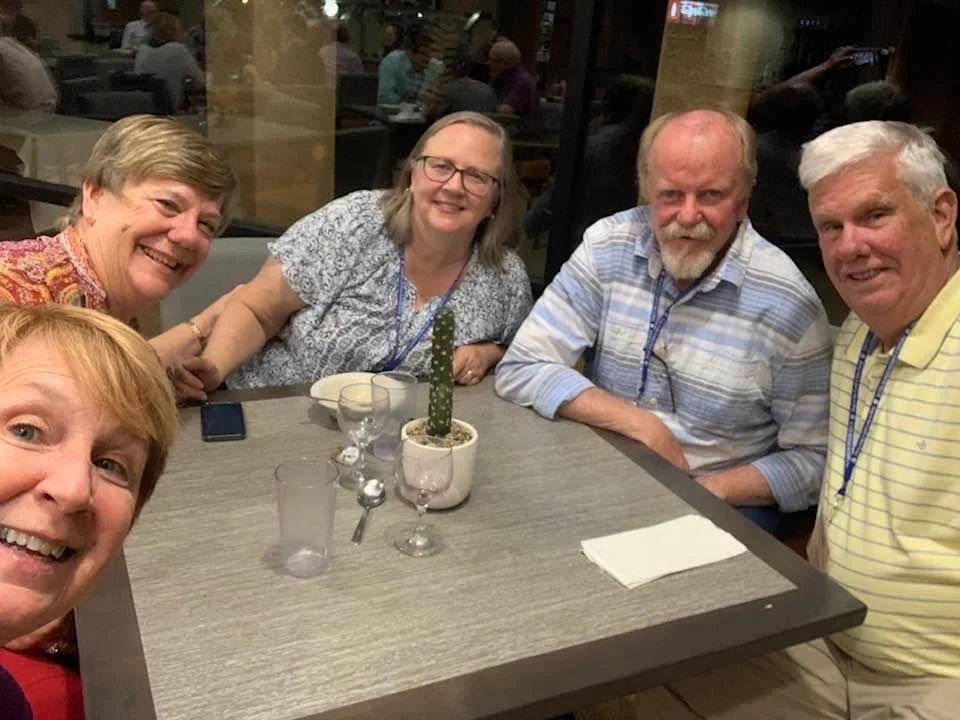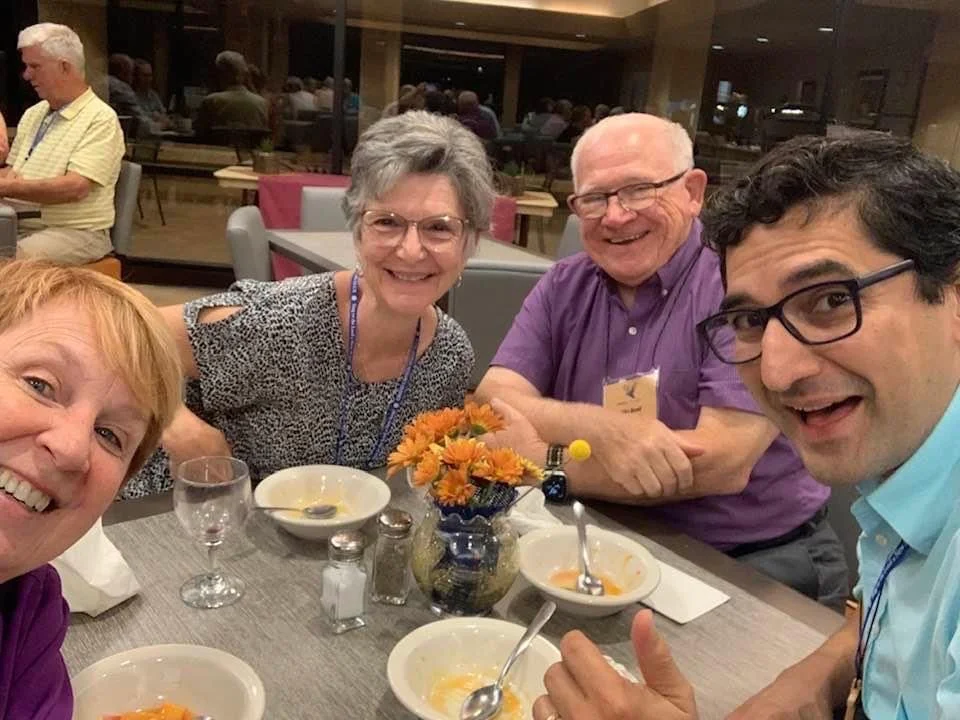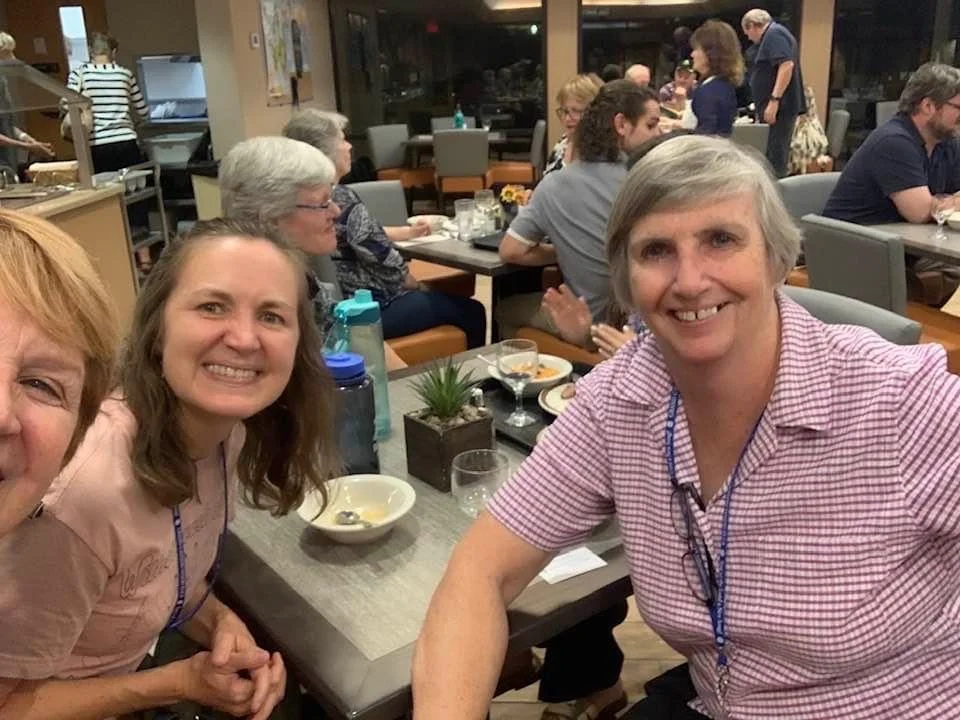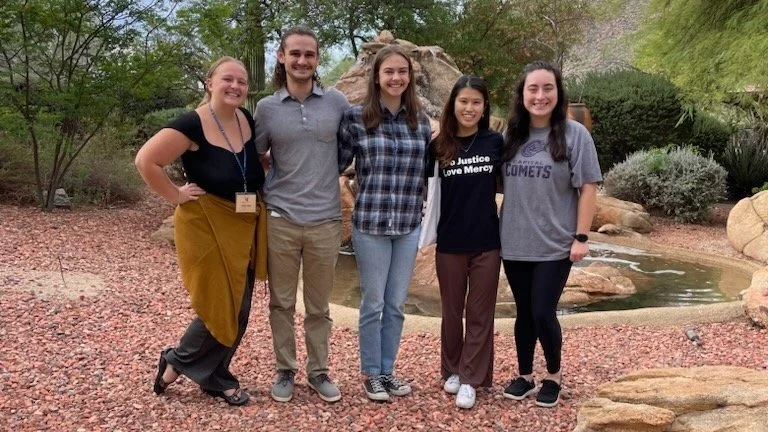2023 State Public Policy Office Retreat
From September 17 - 20, the LAMA office hosted the State Public Policy Office (SPPO) directors from Ohio, Kansas, Florida, Wisconsin, Washington, California, New Jersey, Minnesota, Washington DC, Virginia, Pennsylvania, and, of course, Arizona, at Spirit in The Desert Retreat Center in Carefree. The faith based offices gathered together to discuss priorities for the upcoming year, fresh advocacy and engagement strategies, attend lectures and discussions led by guest speaker Amanda Tyler, and welcome the 2023-24 Hunger Advocacy Fellows. This year’s theme was on Keeping the Faith in Times of Divisions, with a focus on Christian nationalism. Read on to find out more!
What are the SPPOs?
The State Public Policy Offices are a group of faith-based advocacy offices working on policy on the state and federal levels. There is a long history of advocacy within the Lutheran Church, as modern democracy allows us to use public policy to live out the gospel directives of protecting the oppressed and feeding the hungry, and though each of the SPPOs function uniquely, we are brought together by our shared goals. Some of these offices are interfaith groups, such as Virginia Interfaith Center, led by Kim Bobo, and Kansas Interfaith Action, led by Rabbi Moti Rieber. Other offices are ELCA-based, and some, like LAMA, are based out of their synod. Each of our offices are optimized to best operate in our respective communities, and despite our diverse backgrounds, we work together to advocate on the basis of God’s justice for all.
Retreat Activities
Our time at Spirit in the Desert was split between worship, issue roundtables, and skill development. Together, we were able to ground ourselves in our mission of service. We also got the opportunity to network with each other in our off time, allowing newer staff to form deeper connections and Hunger Advocacy Fellows to meet the broader team.
Worship
Hebrew Prayer led by Rabbi Rieber
Worship services, led by Rev. Sara Lilja from New Jersey, Peter Severson from Colorado, Rev. Cindy Crane from Wisconsin, Rabbi Moti Rieber from Kansas, and Regina Banks from California, opened each day, with an additional closing service at the end of the retreat. These sessions were each different; our opening service included the distribution of the Eucharist, our closing service included blessings for our staff and choral arrangements, and the ones in between included everything from meditation on psalms, to discussion based sermons and exploration of parables. These different expressions of worship allowed our staffers from all traditions, not just Lutheran, to be welcome at our shared table, and offered new and collaborative ways for us to think about our work and calling.
Choir at our closing service
Issue Roundtables
The retreat featured multiple breakout sessions dedicate to specific issues. The issues up for discussion were Hunger & Food Access, Environmental Issues, Affordable Housing, Health Equity/Medicaid Expansion, Gun Safety, and Criminal Justice Reform. Each roundtable was led by an SPPO member with experience in the specific field, and each discussion took its own shape. Since each office has priorities specific to its community, each discussion offered education on the issue, such as term definitions and statistics, as well as how each issue relates to our central mission of alleviating hunger and to each other. The roundtables featured brainstorming on advocacy tactics and policy solutions, and all members were invited to swap stories about what has and hasn’t worked for their offices. This allowed offices with experience on certain issues to help offices looking to expand into new areas. We talked about ways to optimize engagement for churches, as well as navigating legislative spaces, and since each state has a different relationship to all of these issues, we were able to share advice and perspectives, and collaborate on fresh ideas.
Affordable housing roundtable, led by Tamm Wahlof (Minnesota), right)
These roundtable discussion invigorated our offices by giving us a good look at some of the specific issues on the docket for the upcoming legislative sessions. As offices shared the plans they have in development, we were able to form inter-office partnerships, share relevant resources, and add pieces of relevant legislation to our radar. Not only did these discussions give all of us ways to strengthen our own offices, they allowed us to better support each other’s work.
Brainstorming notes from roundtable discussions
Tyler testifies in Congress about the dangers of Christian Nationalism.
Guest Speaker Amanda Tyler
The retreat’s guest speaker was Amanda Tyler, executive director of the Baptist Joint Committee for Religious Liberty (BJC). The BJC is a national faith-based group dedicated to the Baptist tradition of protecting religious liberty and freedoms for all. As executive director, Tyler leads the organization in defending the free exercise of religion and protecting against its establishment by government. She is a member of the Texas and U.S. Supreme Court Bar, and has used her experience with constitutional law analysis to advocate for faith freedom. She has experience working in private legal practice, congress, and as a law clerk for a federal judge. Tyler has led the BJC in its recent focus on Christian nationalism, and the organization of its Christians Against Christian Nationalism Campaign.
Christian nationalism is the merging of religious and American identity, imposing the idea that America ought to be a Christian nation, to be a good citizen one must be Christian, and to be a good Christian one must espouse specific political ideologies. Christian nationalism is a very present part of our country’s political conversation at this time, and it is important that we understand the ways that this rigid framework is influencing policy decisions, as well as rhetoric. Our SPPO staff had read Taking Back America For God, a book on the phenomenon by Andrew Whitehead and Samuel L. Perry, Whitehead’s new book American Idolatry: How Christian nationalism betrays the gospel and threatens the church, as well as listened to Tyler’s podcast series The Dangers of Christian Nationalism prior to the gathering.
Amanda Tyler, speaking on the role of Christian Nationalism in the Jan. 6th insurrection
On Monday, Tyler gave us two presentations. The first one outlined the specific nature of Christian nationalism and the way the ideology functions. To learn more about Tyler’s presentation on Christian Nationalism and the Christians Against Nationalism Pledge she invited us to sign, read our blog post here. Later in the day, Tyler talked to us about the way that Christian Nationalism is infiltrating our public school system through legislation like Texas SB 763, book bans, and “Don’t Say Gay” bills. After each of the presentations, Tyler led us in roundtable discussions. Here we dissected our reading materials, discussing what we found helpful from this research, as well as the flaws that we found. We discussed ways our offices can combat Christian nationalism on a policy level, and how our communities can engage with the ideology on personal level. We also discussed what we can do within our churches and communities to examine and untangle our own relationships with Christian nationalism.
Congregational Engagement Panel & Synod Guests
On Monday afternoon, LAMA director Solveig Muus felicitated a panel on congregational engagement. We invited guests from around the Grand Canyon Synod to join us; this included LAMA liaisons, congregational representatives, clergy, LAMA policy council, synod staff and Bishop Debora Hutterer. The panel, consisting of Tammy Walhof, director of Lutheran Advocacy- Minnesota, Regina Banks, director of Lutheran Office of Public Policy- California, Peter Severson, director of Lutheran Advocacy Ministry- Colorado, and Deacon Nick Bates, director of the Hunger Network of Ohio, answered questions and offered strategies on how congregations can get engaged in advocacy. The topics for discussion were supporting pastors on preaching justice, involving youth and young adults in advocacy, engaging adults in advocacy, inviting people to the state capital, and navigating and overcoming the aversion to politics within congregations. Our guests were able to ask questions relevant to their own communities and network with other members of the synod. After the panel discussion, there was a reception with refreshments, where synod guests and advocates got a chance to get to know each other.
Skill Sessions
Each day of the retreat featured session dedicated to learning about specific skills. In addition to Solvieg’s panel on Congregational Engagement and Amanda Tyler’s discussions, we talked about engaging young people in advocacy, civic engagement, fundraising, and interfaith partnership.
Hunger Advocacy Fellows
2023-24 Hunger Fellows
One of the most special parts of the retreat was the welcome of our Hunger Advocacy Fellows! Hunger Advocacy Fellowships are designed to be year long programs that allow young adults to learn about advocacy and policy through hands on experience. Each fellow is placed in an office for the year to work on policy goals on the state and federal levels. Most of this year’s cohort got to meet this year, with the exception of a couple offices. Our fellows include Autumn Byars from LAMA, Tomo Duke from Faith Action Network in Seattle, Washington, Quentin Bernhard from Lutheran Advocacy Ministry Pennsylvania, Frances Dobbs from the Lutheran Office for Public Policy in Wisconsin, and Jillian Russel from Hunger Network Ohio.





